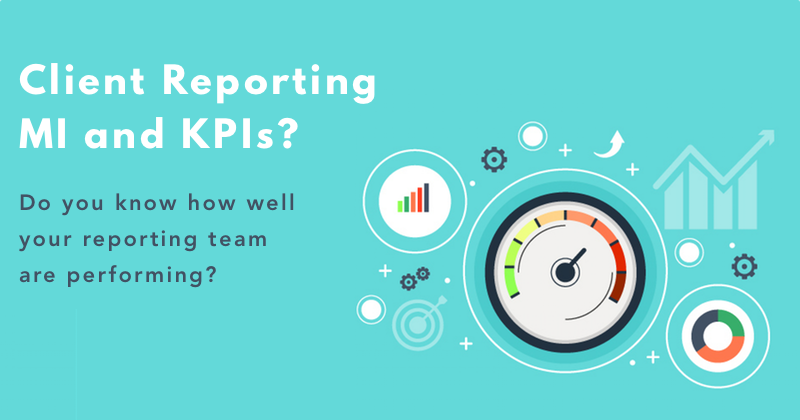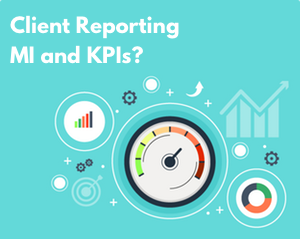Does your current client reporting system allow you to accurately measure your KPIs and target areas for improvement? Can your existing team and systems cope with more demanding timelines, higher reporting volumes and more complex reports? Is your client reporting integrated with your digital strategy?

Older, legacy reporting systems typically provide none or very limited information about what’s actually going on, how the teams are performing or the level of data issues. They can also struggle with how many reports were dispatched or if there were any missed deadlines. With older systems, the reporting team have to manually prepare this type of information once all the reporting activities are completed for the month. No sooner have they finished manually compiling the management information (MI) to assess the key performance indicators (KPIs) than the whole process starts again, leaving little time to interrogate the numbers, identify areas for improvement and agree changes to generate the required improvement.
Modern reporting systems change all this:
- MI automatically produced and available 24×7 for all activities
- Online views and drill down interrogation to identify bottlenecks and areas for improvement
- Comparisons and trends easily assessed over multiple periods
Additionally, rather than always looking historically at the end-to-end reporting process, a modern cloud-based system allows for the review of the status, any issues and all progress, at any level of summary or detail, from anywhere in the world via a tablet, PC or even a smartphone.
Interestingly, the high levels of automation allow for significantly reduced report production and dispatch timeframes and for massive increases in control, capacity and scale – without adding a single additional resource to the team. Reporting as a Service brings immediate benefits to a firm’s client reporting, future-proofs the reporting function and fully integrates with your digital strategy.
In the Reporting as a Service model, the investment firm’s own reporting team use the system to control, manage and produce their own reports – to their exact content, layout and branding. Due to the efficiency and world-class nature of the reporting system, we find that the existing reporting team can produce improved reports, more accurately and in a shorter timeframe.
For more information about Reporting as a Service please visit www.opus-nebula.com or email [email protected].

